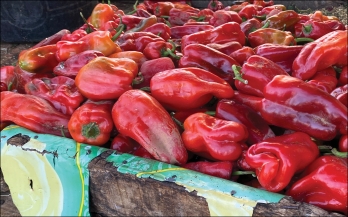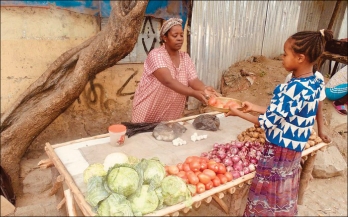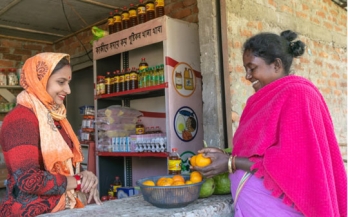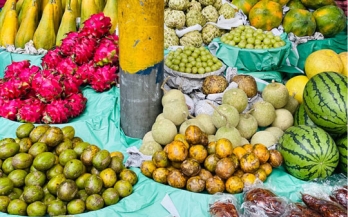- 15/12/2021
EatSafe collected samples of seven nutritious commodities to assess the relative exposure and risk of foodborne illness from consuming products commonly sold in traditional food markets in northwestern Nigeria.
- 20/02/2023
The EatSafe program conducted a range of formative research activities to understand the local context in Hawassa, Ethiopia. Learnings from these activities were then used to develop market-based interventions to increase consumer demand for improved food safety.
- 20/01/2023
Limited access to markets and poor market infrastructure are underlying factors that negatively impact nutrition outcomes for the rural poor in hard-to-reach areas, including communities working on tea estates in India. An innovative and sustainable market-based supply chain model was tested in Assam, India, to improve the nutrition of the tea estate communities.
- 19/01/2023
Healthy diets are unaffordable to over 2 billion people worldwide and food access remains a challenge for many. The food environment illustrates the interaction of consumers with different food retail outlets to acquire and consume food.
- 09/01/2023
As elaborated in a GAIN evidence brief, poor-quality diets and insufficient food quantity are linked to reduced work capacity. This suggests that the malnutrition burden can be partly addressed through a win-win-win approach which improves individual lives, business outcomes, and national economies.
- 10/01/2023
As elaborated in a GAIN evidence brief, poor-quality diets and insufficient food quantity are linked to reduced work capacity. This suggests that the malnutrition burden can be partly addressed through a win-win-win approach which improves individual lives, business outcomes, and national economies.
- 09/01/2023
As elaborated in a GAIN evidence brief, poor-quality diets and insufficient food quantity are linked to reduced work capacity. This suggests that the malnutrition burden can be partly addressed through a win-win-win approach which improves individual lives, business outcomes, and national economies.
- 11/01/2023
As elaborated in a GAIN evidence brief, poor-quality diets and insufficient food quantity are linked to reduced work capacity. This suggests that the malnutrition burden can be partly addressed through a win-win-win approach which improves individual lives, business outcomes, and national economies.
- 10/01/2023
As part of the Workforce Nutrition Alliance, urges Colombian regulators and policymakers to support employers by further developing and implementing public policies for improved workforce nutrition.
- 11/01/2023
As elaborated in a GAIN evidence brief, poor-quality diets and insufficient food quantity are linked to reduced work capacity. This suggests that the malnutrition burden can be partly addressed through a win-win-win approach which improves individual lives, business outcomes, and national economies.









